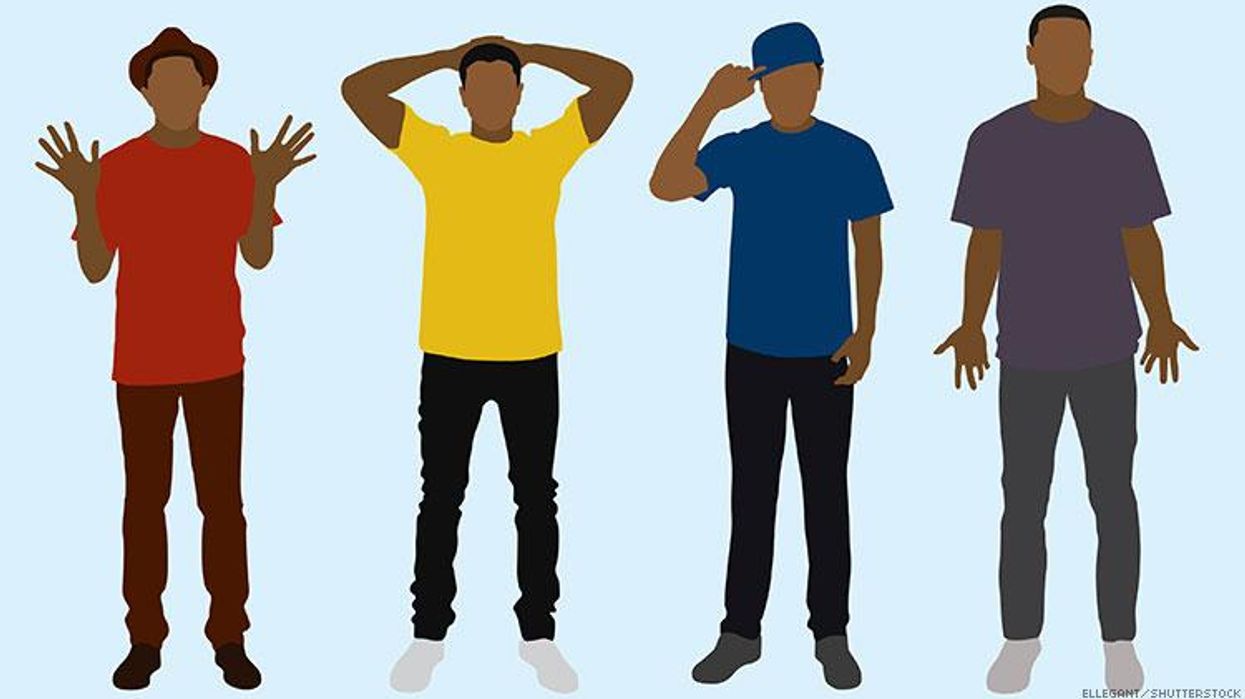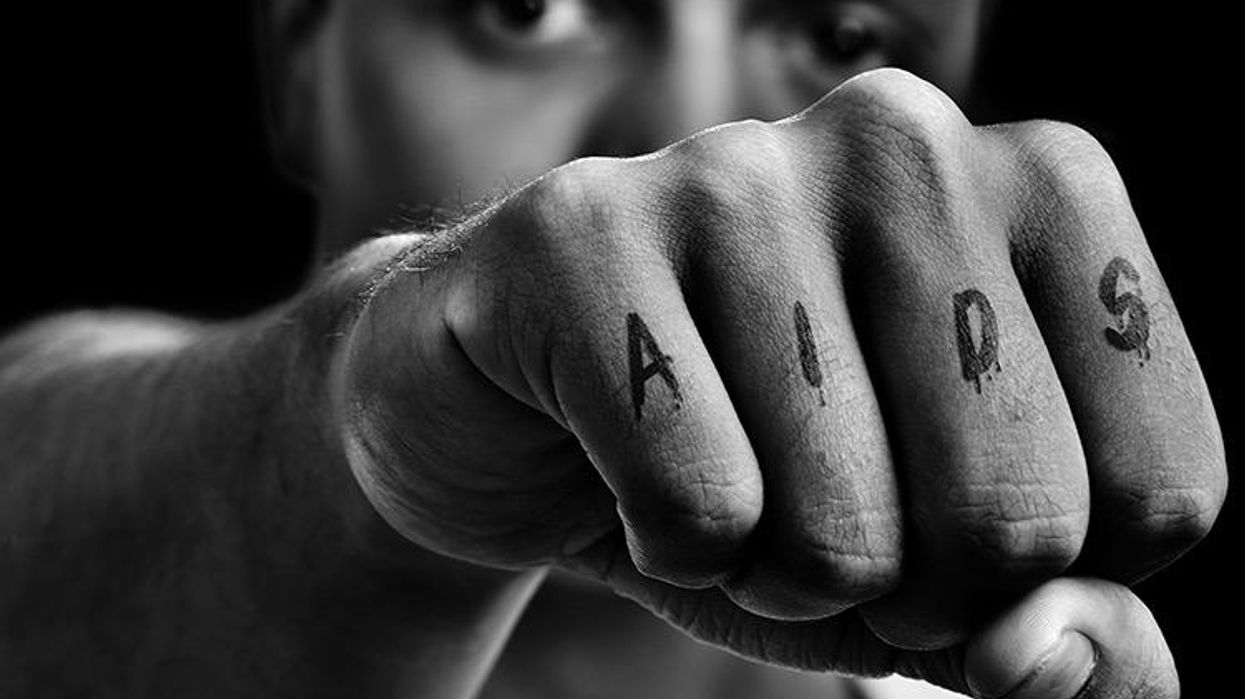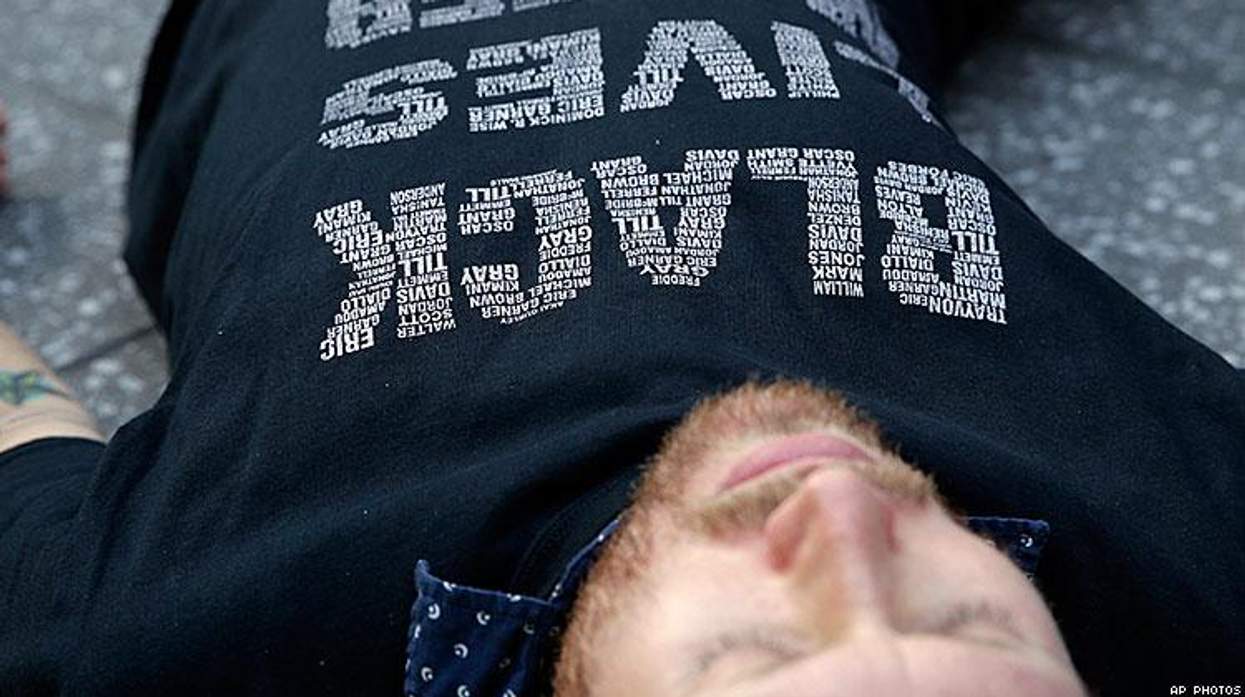It is not easy to be a young single black gay or bisexual man in the United States.
Racism is very much a reality in the gay dating world, as evidenced by the numerous articles, studies, and think pieces illustrating this sad fact. Phrases like "no blacks" are pervasive on apps like Grindr and Scruff. At other times, people of color say they're treated like an exotic novelty.
If that's not depressing enough, these men also face a health crisis. One out of four black gay and bisexual men will be HIV-positive by the time they turn 25 years old. About six in 10 will be positive by 40.
Activists want that number repeated over and over to drive it home: At the current rate of infection, nearly 60 percent of this group will test HIV-positive by their 40th birthday. It's a horrifying statistic, one that has galvanized The Advocate to launch a weeklong series of articles, #6in10Men, illuminating what's led to the health crisis and lets its persist.
Many studies have sought to connect the aforementioned dots. Are these two factors -- racism in dating and the HIV crisis -- related? The answer must be yes. A 2014 study shows among black men who have sex with men, 45 percent of sexual encounters were with other black men. The researchers who identified that unusually high number didn't explore what caused it. But it's significant, considering that African-Americans make up only 13.2 percent of the population, according to a 2014 report from the U.S. Census Bureau.
These men are dating within a smaller social network, the researchers concluded, which leads to a higher statistical likelihood of contracting the virus. A single case of HIV in a small social network "would allow HIV to penetrate the networks of black MSM," and it would travel through the network, infecting these men "more efficiently" than it would white men.
Studies show black gay and bi men are not likelier to engage in risky sex than white gay and bi men. They are actually likelier to wear condoms than other groups and less likely to use drugs before or during sex. Probability, it seems, has stacked the deck against them when it comes to HIV infection.
But eliminating racism in the gay community and breaking free from a limited dating pool may not be the solution. That fight is "impossible," says Lamont Scales, a public health analyst-coordinator for gay, bisexual, and other MSM activities of the Centers for Disease Control and Prevention's division of HIV/AIDS prevention.
"When you look at the racism and discrimination that black gay and bisexual men experience from other gay and bisexual men, that is impossible," reiterates Scales, who is a black gay man himself. "And I think that's why you will see that the sexual networks are limited to only dating other [black] gay and bisexual men."
What limits a dating pool isn't solely the racism exchanged on Grindr. Social and sexual networks are often based on a person's location, for example. Systemic racism, which engenders economic discrimination, means many of these men are unlikely to move away from their neighborhoods. Many members of minority groups might also prefer to date within their networks, because doing so provides support and reinforces community.
Scales maintains that while conversations about the impact of racism in dating are worthwhile and it "rings true" that gay men often aren't welcomed to date outside their own race, such debates are "missing the point," as they do little to stem the HIV crisis. Instead, he points to racial disparities in health outcomes. Issues such as housing and employment are too often overlooked in the media, he says. And it's health outcome that is "the primary reason" why we see increasing HIV infections among black gay and bisexual men.
"Black gay and bisexual men experience poor health outcomes compared to white gay and bisexual men," he states frankly. "They are more infectious because the health care system has failed to be able to provide quality care for black gay and bisexual men."
A 2012 report from the CDC shows black gay and bi men who are HIV-positive are less likely to be on antiretroviral medication and have higher viral loads than their white counterparts, making it easier to pass HIV on to others. They are also less likely to have health insurance. More HIV testing and treatment are needed within communities of color. But that requires forcing policymakers to address how systemic racism has limited the health opportunities in minority communities, so that they can obtain access to care.
This care ought to include prevention. But the most revolutionary tools for prevention aren't making it to gay and bisexual black men. For example, the CDC and the World Health Organziation both endorse pre-exposure prophylaxis (PrEP) as essential in preventing the spread of HIV. In fact, the White House recently released a 10-year plan that includes full access to PrEP as part of its prevention strategy. And no wonder. Studies show that, if taken daily, this treatment is up to 99 percent effective in preventing transmission of the virus.
While many gay men have recently become aware of the treatment -- despite naysayers like Michael Weinstein, the head of the AIDS Healthcare Foundation, who fears its practitioners will abandon condoms -- preliminary reports show that most of these men are white.
Economic obstacles, a lack of education about the tool, and the other aforementioned factors related to health outcome are preventing many minority men from accessing PrEP. And in a community in which HIV has reached such a high rate, PrEP could be a panacea, a game-change move in reducing #6in10Men to zero in 10.
Currently, the CDC is working with health departments across the country on PrEP to educate them about its potential. The state of Washington has already recognized it. Recently, its leaders announced a program that will cover the full cost of the treatment for those who can't afford it and who meet several sexual health criteria. If such programs were adopted by states in the South, where the percentage of African-Americans is highest, it could drastically reduce the HIV rates in minority communities.
"Be aware of what prevention tools are available to stay healthy," Scales advises gay and bi black men, though he stipulates that society also bears a responsibility to provide sexual education to young people that includes talking frankly about HIV and sex between men.
For men in the dating world, Scales also emphasizes the importance of communication to sexual health with potential partners. He points to the CDC's "Start Talking, Stop HIV" initative as a helpful resource, as it provides conversation starters to broach potentially awkward discussions about sex and HIV.
Ultimately, Scales drives home that although racism on dating sites is unfortunate, it is the "social determinants of health" that must change before the tide will change in the fight against HIV in the black community.
"If we're going to really make an impact in this epidemic, we have to focus on the social determinants of health -- such as employment, housing, mental health -- that place black gay and bisexual men at greater risk for HIV infection and other poor health outcomes," he concludes. "Until we do that, we will continue to see increases of HIV among minorities and black gay and bisexual men."
The Advocate's #6in10MenIf nothing changes, 6 in 10 black gay and bisexual men in the United States will have HIV by the time they are 40 years old. Learn more about this crisis in The Advocate's series #6in10Men: https://www.advocate.com/6in10men
Posted by The Advocate magazine on Friday, September 25, 2015















Charlie Kirk DID say stoning gay people was the 'perfect law' — and these other heinous quotes
These are some of his worst comments about LGBTQ+ people made by Charlie Kirk.